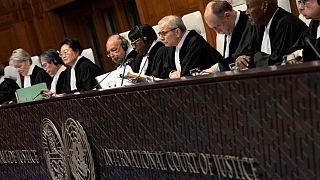plastic waste
Negotiators in Busan, South Korea, have failed to reach their goal of clinching a treaty addressing the worldwide crisis of plastic pollution - an agreement they had hoped to finalise before the end of 2024.
For some delegates, including African delegates, the treaty had become too watered down. But others, including Saudi Arabia, Kuwait and Iran refused to change it
For the chair of the negotiating committee, Luis Vayas Valdivieso, the talks were of some value. "We have made significant progress in Busan in our collective effort to address plastic pollution, including its impact on the marine environment. However, our work is far from complete, and we must remain pragmatic as we continue collaborating toward our shared goal," he said.
It would have been the first legally-binding treaty on the issue. Negotiators agreed to pick up talks next year.
But some, including Jyoti Mathur-Filipp, executive secretary of INC, argue that time is running out.
"We have tested the resilience of our planet to its limit. Now is the time for us to push our own limits and honor the trust placed in us. You have the INC Secretariat, and my unwavering support to get this done," Mathur-Filipp said.
175 nations agreed to develop the treaty back in 2022, in the face of a growing worldwide problem.
The global population produces more than 400 million tonnes of new plastic each year, which is coming with a heavy environmental cost. According to Ghana’s lead negotiator, communities, bodies of water and farmlands are overwhelmed with plastics.











00:07
Pics of the day: April 11, 2025
Go to video
Pics of the day: March 27, 2025
05:35
North Korea fires missiles as U.S.-South Korea drills begin
01:00
Bright red river outside Buenos Aires sparks fears of pollution
01:00
Air Busan plane catches fire at South Korean airport, all 176 evacuated safely
02:16
Kenyan start-up turning invasive plant into biodegradable packaging